So, you know why you want to hire a professional book editor. But finding a qualified and trustworthy book editor can feel challenging. It can be hard to know where to look, who to trust, and what questions to ask.
You might be worried about getting scammed, or hiring someone who isn’t qualified or the right fit. Or you simply don’t know how to choose from the many editors available.
Here is a rundown of where and how to communicate with potential editors, as well as tips to help you know if they’re the real deal.
Where to find a good book editor
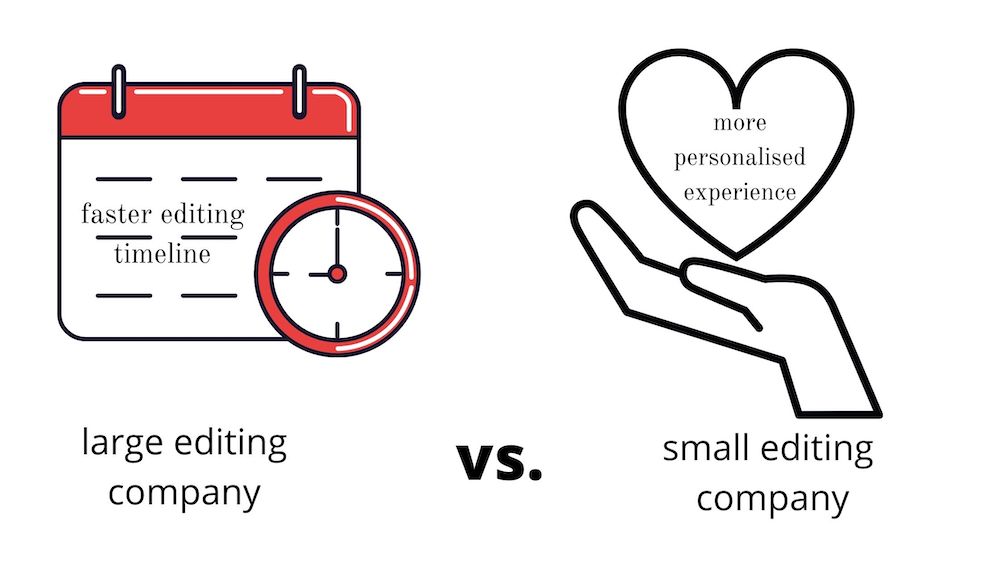
When you start your search for a book editor, the number available may seem staggering. Start by breaking it down. Do you want to work with a large company, or an individual/small business, like The Open Book Editor?
Hiring a book editor: larger organisations
The major advantage of hiring a company is that they have a large team of editors. This means there is always a book editor available to work on your manuscript, so you get it back faster.
The disadvantage of a large company is that the experience is often less personal and not as well-tailored to your unique needs as a writer. It’s hard to build a long-term understanding with your editor when they change every time you need them.
Many of these companies use freelancers, as well. So, they’re just as likely to give your book to an external contractor as they are an in-house editor, especially during busy periods.
Hiring a book editor: smaller businesses and individuals
A personalised experience is where smaller editing providers—usually run by one or two book editors—really shine. Smaller editing providers can offer customers more exclusive attention.
They’ll also take the time to get to know you, your writing process, and your work on a much more personal level. They are more likely to keep your wider ambitions in mind during the editing process. And developing a closer bond means the author-editor relationship is more meaningful and productive over time.
However, the lack of a large editing team can mean the provider has a waiting list. If you’re willing to accept a longer editing timeline, you can really benefit from hiring a smaller editing company. After all, the best author-editor relationships are based on trust and confidence, not speed.
Some recommended places to find a book editor

While it’s a bit of a minefield, Google remains the best search engine for finding online services, like book editing. Narrow your search for trustworthy and established editors with search terms like “professional book editor”, “where to find a book editor I can trust”, and “best places to hire an editor”.
Pros:
- Wide selection.
Cons:
- Due to the variety, you are more likely to encounter scams or bad editors. (Read below to find out how to avoid the bad apples.)
Social media
There are plenty of writing and editing groups on Facebook, and you can use hashtags like #WritingCommunity to connect with writers on Twitter and Instagram. Contact a few and ask if anyone can recommend a reputable book editor.
Pros:
- More organic way to connect.
- You’ll meet other writers and learn from their experiences.
Cons:
- All online interactions are anonymous to some extent, so you have to take suggestions with a pinch of salt. Don’t hire an editor solely based on a recommendation from another writer.

Take a peek at subreddits like u/hireaneditor, r/selfpublish, and r/writing. Put up a post asking for editor recommendations or check out existing posts.
Pros:
- Great for finding newer book editors looking to break into the business.
- A place to source beta or critique partners to read your work before you hand it over to an editor.
Cons:
- Reddit is more anonymous than most platforms, which makes it hard to weed out scammers and trolls. Only hire an editor after you’ve properly vetted them.
Reedsy
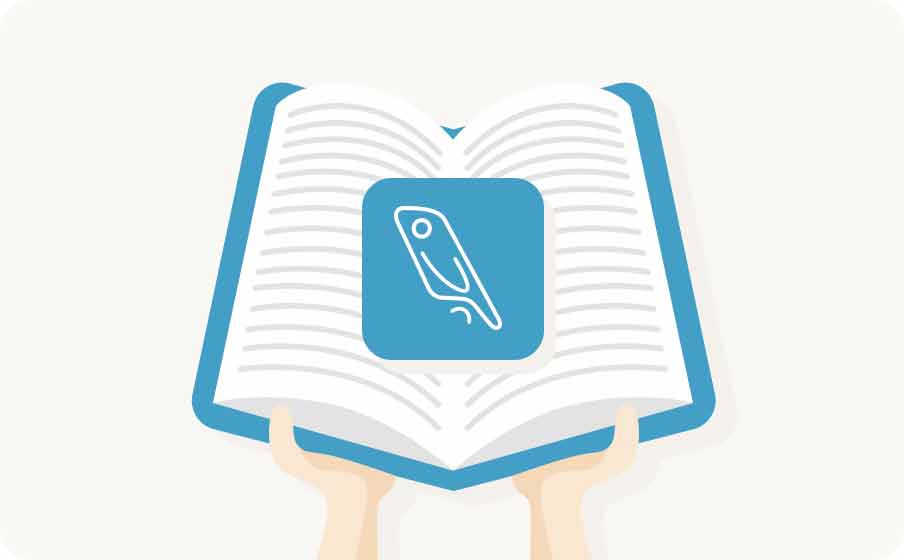
Reedsy connects you to a wide net of book editors and proofreaders. You can compare prices and ratings from different editors to find your perfect match!
Pros:
- The rating system makes it easy for writers to rate their experiences with editors and, therefore, makes it easier to find a book editor you can trust.
- Reedsy offers a host of other services for writers, including writing software and specialists in book marketing, cover design, and more.
Cons:
- Good manuscript editors without many reviews are easily overlooked.
- Meanwhile, those who get boosted to the top are often more expensive.
CIEP
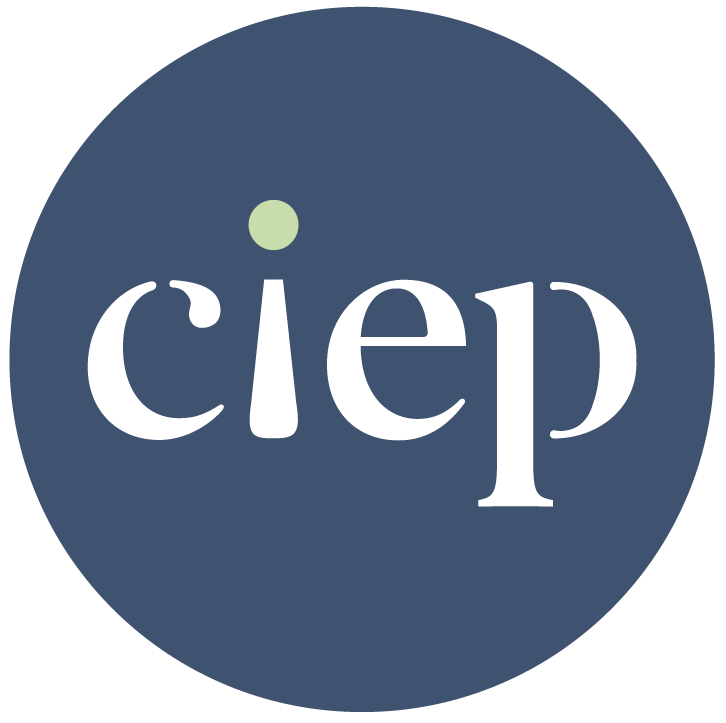
An extensive directory of proofreaders and editors for fiction, non-fiction, and your book’s genre or subgenre.
Pros:
- Every book editor who wishes to be included in the directory must provide proof of experience and a body of work.
Cons:
- Similar to Reedsy, great editors with less experience or a smaller body of work get pushed to the back.
The Open Book Editor
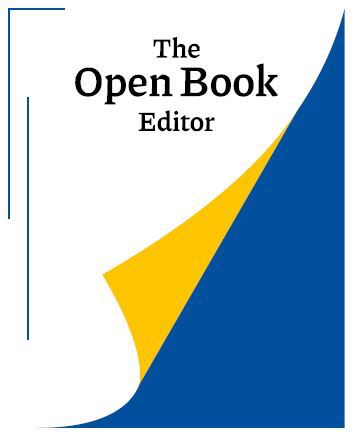
Personalised manuscript and book editing services from a small team of professional editors qualified to perform every type of editing, including developmental edits, copy-editing, and proofreading.
Pros:
- Personalised service with a focus on developing long-term author-editor relationships.
- Highly qualified and reliable.
- Affordable and with customisable payment options.
- Provides free 2-3 page sample edits, depending on which type of edit you require.
- Maintains constant contact throughout the editing process.
Cons:
- Mid-range pricing: attempts to keep quotes as low as possible, but the prices also reflect the qualifications, expertise, and time investment of our editors.
How to identify a great book editor (before you hire one)

A trustworthy book editor will insist on speaking with you a little before agreeing to you hiring them. The more you speak with them, the better you’ll understand if you get on with them. Use the following questions as a template to get to know your editor while finding out if they’re legit at the same time.
- How long have you been in the business?
- What qualifications do you have related to editing?
- Which editing services do you provide? Can you walk me through them?
- Do you have any industry connections? Have you worked with any well-known authors?
- What’s your editing and/or genre speciality? What are some of your favourite books?
- Can you tell me the titles of published books you’ve worked on?
- What’s your editing strategy? How will we work together? How often will we communicate? What’s the timeline?
- Do you have reviews or testimonials I can read?
- Do you use a standard contract for the work to be carried out? If not, can we have one if I work with you?
- Do you have a refund policy? What happens if I don’t like your edit?
Remember, you can always contact other authors the editor has worked with and find out what their experience was like. Word of mouth is a great way to source potential editors.
How to know you’ve found a trustworthy book editor
Writing might be your dream job, but a bad encounter with a scam editor can quickly turn it into a nightmare. There’s no lack of bad or unskilled editors online who will take advantage of authors. Likewise, there are plenty of vanity publishers put there who offer editing services. They promise a polished book but deliver a poorly edited mess.
A few ways to know if you can trust a potential book editor
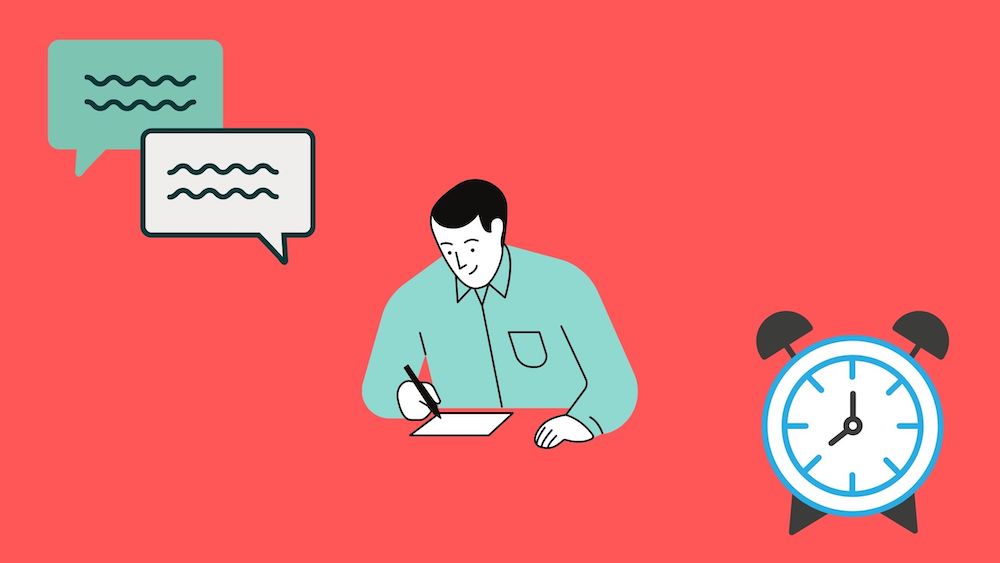
- Be wary if an editor asks for the entire fee upfront and with no contract. If you want to pay upfront, request a clearly worded contract to ensure delivery of your edited manuscript.
- Make sure the specs and scope of the project are laid out in writing.
- How long will each edit take? The standard is 4-8 weeks for a novel-length manuscript, though some editors will work faster or slower.
- How will your book editor stay in touch?
- What’s expected of you? Some editors might detect issues they think you should fix before they continue. Others prefer to complete their brief in its entirety before handing the manuscript back.
- Be wary of editors who make big claims, such as promising to make your book a bestseller or turning over edits faster than usual.
- A trustworthy book editor will list the services they provide and explain them. And because editors have specialities, a good book editor will tell you which genres they read. Be careful if an editor claims to edit anything and everything.
- You can judge a lot from a book editor’s website. Is the website sloppy? Is it riddled with errors? Do they openly provide reviews? Do they offer informative guidance and posts about editing?
- Check reviews elsewhere, like Google and social media pages, to ensure the editor isn’t censoring the negative testimonials on their website.
- Many editors offer sample edits. Here at The Open Book Editor, for example, we will edit 2-3 pages for no charge. This can help you assess the book editor’s talent and see if they’re a good match for you before hiring them.
Listen to your gut
Listen to your instinct when it comes to hiring a trustworthy book editor. Never feel pressured to hire someone—if they are constantly rushing you or trying to force your hand, it’s a sign they are after you for your money. Don’t be afraid to say no.
We offer author coaching at The Open Book Editor and would be happy to talk you through the process of hiring an editor, regardless of whether you decide to work with us. If you have someone in mind, but aren’t quite sure, or would like more information on what to look for in a book editor and what questions to ask, contact us to have a chat.
A good author-editor relationship can be transformative—both for you as a writer and for your work. Take your time finding the right fit. You and your book are worth it!
